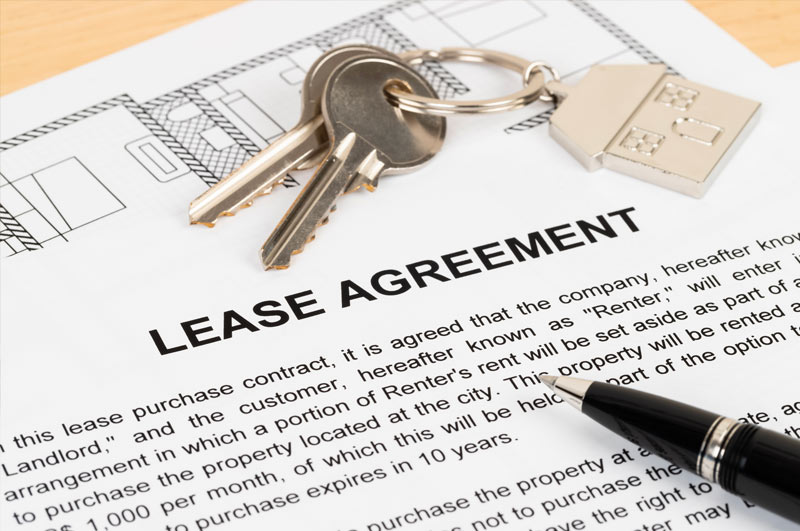When Promises—and Leases—Are Broken
Among the many problems you may encounter as a Jacksonville area landlord, tenant challenges are chief among them. You may meet tenants that are a challenge to communicate with, tenants that struggle to pay rent on time, and tenants who find it impossible to keep up with their share of property maintenance.
All of these things can be frustrating challenges, but they can be somewhat predictable when you start to encounter them. What do you do when you rent to a tenant who can’t live up to the basic terms of the lease, and you find yourself with an unexpected vacancy to fill? All is not lost! We’ll discuss what you should do next, and how to prevent the problem from recurring in the future.
Is It for the Best?
When a tenant breaks their lease, they’re sticking you with a frustrating and unexpected inconvenience even in a best-case scenario. Consider, however, that it can often be for the best: it’s likely that if a tenant has come to a point where they feel that breaking the lease is the right course of action for them, they have probably been exhibiting some challenging behaviors before making that decision.
If they haven’t, and this seems like it has come “out of the blue,” then it’s possible that challenges with that tenant were just around the corner. While a broken lease does saddle you with the short term burden of filling a vacant property, it does save you the trouble of formally evicting a problem tenant. Eviction can be a challenging and expensive legal process, even in a best-case scenario.
What Should You Do Next?
Unlike many states, Florida law does not stipulate that you must look for or rent to a new tenant in the event of a broken lease. A tenant who breaks a lease in Florida and moves out without legal justification does remain liable for the remaining rent as it becomes due. You may find that letting a tenant go and finding a replacement right away is often the most economically sensible thing to do. Collecting on rent that a tenant owes you in this scenario will probably require a lawsuit and a trip to small claims court. This decision is yours to make, but consider it carefully and be sure that you aren’t merely throwing good money after bad. You may be able to work with the tenant and find someone to take over the lease for the remainder or come to another sort of agreement that satisfies both of you, especially if the tenant has a compelling reason to leave. In any case, finding good legal advice is a sensible step to take.
When Is Breaking a Lease Legal?
Florida law provides for a few scenarios where a tenant is legally justified in breaking a lease and is not on the hook for the entire term of the lease. You should be familiar with these scenarios when renting your investment property in the Jacksonville area.
1. Active Military Service
A tenant who enters active duty with a uniformed service (this includes the traditional armed forces as well as the commissioned corps of the National Oceanic and Atmospheric Administration (NOAA), commissioned corps of the Public Health Service, and Reserve or National Guard personnel called to active duty). A tenant is required to deliver notice that they are terminating the lease early for military reasons and their lease will end 30 days after the date that rent is next due.
2. Safety Issues or Code Violations
A tenant can be legally justified in breaking a lease if the unit they are occupying is considered to be unsafe or in violation of health or safety codes. Typically, these sorts of issues must be severe or involve the denial of an essential service, such as a lack of heat or water. Florida law stipulates specific procedures that a tenant must follow before they can break a lease for this sort of issue, so ideally you should be well aware of any problems before they rise to this level.
3. Harassment or Privacy Violations
A tenant can be legally justified in breaking a lease if they have been subjected to harassment or privacy violations by a landlord, such as:
- Failure to give 12 hours notice before entering the property
- Removing windows or doors
- Changing locks
- Shutting off utilities
If you are doing your due diligence in your interactions with your tenants, then you shouldn’t encounter issues of this sort.
Avoid Problem Tenants with Some Work up Front
When a tenant breaks a lease, it can interrupt your usual vacancy cycles and may set you up for some frustrating interactions with small claims court. Even in a best-case scenario, this can cost you money, so it’s a wise move to do everything you can to avoid this whenever possible.
A proper tenant screening process can be a big help in ensuring that you are renting to the right people and that you won’t encounter unexpected issues half-way through a lease. Take a look at a few key metrics when considering tenants; ideally, the process will you give you a picture of a renter’s:
- Rental history
- Employment and income
- Credit history
- Prior evictions
- Criminal record
If a renter comes up clean on these checks, you can be reasonably certain that nothing unexpected will arise down the road. Even if a renter passes a background check with flying colors, it can be helpful to work with a tenant upfront so that they understand that the lease is a legally binding document and not a mere suggestion. Outline in writing what will occur if a tenant breaks the terms of the lease and consider including an early termination clause if you feel like this is an issue that you may encounter.

Bring in a Jacksonville Property Management Partner
Tenant issues—broken leases included—can be extremely frustrating aspects of real estate investment. Consider hiring a property management company to help you work through any problems that may arise with your renters. A good property manager can help you write robust rental agreements, connect you with timely legal advice, help screen your tenants—and potentially, such as with Green River Property Management, offer a Tenant Replacement Guarantee.
Questions? Let our experts help.



 (495x640).jpg)


